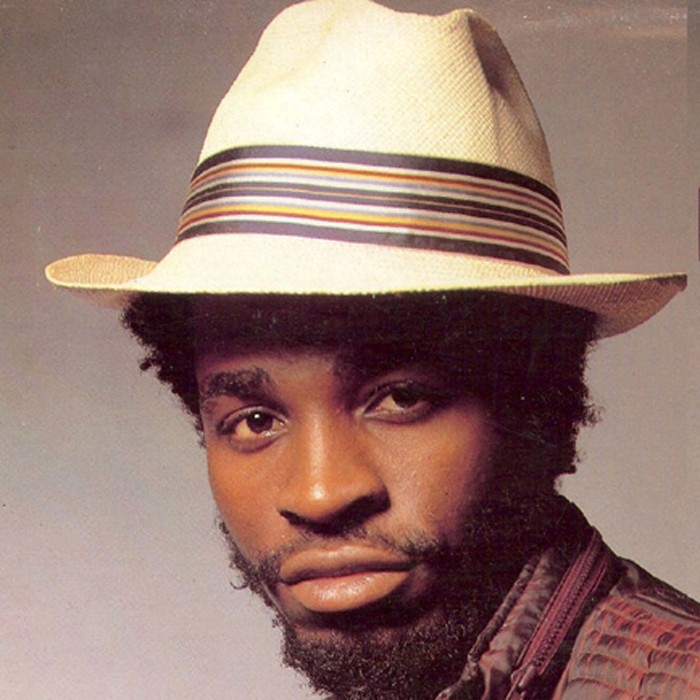Eek-A-Mouse, a towering figure in reggae at 6'6", delivered "Ganja Smuggling" in 1981, a track that perfectly encapsulates his pioneering "sing-jay" style – a unique blend of singing, deejaying, and scatting that set him apart from his contemporaries. The song, an enduring hit, is far more than just a celebration of illicit trade; it's a gritty, unsentimental narrative born from the harsh realities of poverty in Jamaica.
The track opens with Eek-A-Mouse's signature vocalizations, the "Bidi Bidi Bong Bong" and "Dong Dong" phrases, which he refers to as his "Chin-Indian music". These rhythmic, almost percussive, sounds immediately grab the listener, creating an unmistakable sonic identity that has often been described as using his voice as an instrument. His ability to weave these seemingly nonsensical yet captivating sounds into his lyrics is a hallmark of his artistic genius.
At its core, "Ganja Smuggling" tells a tale of desperate ambition. The narrator recounts an "Early, early sunday morning it was a big ganja smuggling" operation. He describes picking "kali bud" (marijuana buds) from the mud and loading them into a van until it's "ram" (full). The weed is then put on a plane and sent to Spain, resulting in money pouring in "like rain". The protagonist then struts down the lane "in a rolled gold chain" with his girl Jane, a clear sign of newfound, albeit ill-gotten, wealth. The term "mogel up the lane" refers to strolling or posing in a cool fashion.
This seemingly triumphant narrative is starkly juxtaposed with verses that reveal the deep-seated motivation behind such risky endeavors. Eek-A-Mouse vividly paints a picture of growing up in the ghetto, where "sufferation I once know" and "tribulation I once know" were daily realities. He sings of a childhood where "Mummy an daddy, all a' we so poor, we all had to sleep on the floor". The imagery of a storm blowing down his door, forcing him to nail up his window, and his "shoes tear up, me toe just a show" underscores the abject poverty and lack of basic necessities. His mother's cries of "poor, poor, poor" and her subsequent plea, "son cry no more", highlight the emotional toll of their struggles. This unflinching depiction of economic hardship makes the turn to smuggling understandable, if not condonable, as a means of escape.
Indeed, the song presents a transparent theme: the protagonist is given a choice between enduring poverty or engaging in crime. The lyrics frankly confess his involvement in what the authorities would deem an "international narcotics trafficking ring". While some might find it disappointing that the newfound wealth is spent on jewelry rather than immediately alleviating his family's suffering by fixing their home, it speaks to the immediate gratification and desire for status often associated with escaping such destitution.
Eek-A-Mouse, whose real name is Ripton Joseph Hylton, began his music career in college and adopted his stage name in 1979 after a racehorse he frequently bet on (which, ironically, only won when he didn't bet on it). He emerged as a "singjay" in the late 1970s and early 1980s, a period when both reggae crooning and deejay toasting were popular, and he skillfully merged the two styles. His bizarre personality, flashy costumes, and penchant for risk-taking further distinguished him. "Ganja Smuggling" was released in 1982 on his album Wa Do Dem, which also featured other hits like "Wild Like a Tiger" and "Do You Remember". The song remains one of his most recognized and beloved tracks, praised for its raw honesty and Eek-A-Mouse's incomparable delivery. Through his unique vocal acrobatics and stark storytelling, Eek-A-Mouse offers a compelling, if controversial, look into the desperate measures some take to transcend the limitations of their environment.
 Queen Elizabeth
Queen Elizabeth
 Ganja Smuggling
Ganja Smuggling
 Kult - Donos do Boga
Kult - Donos do Boga
 Lana Del Rey - California
Lana Del Rey - California
 Passenger - Why Can't I Change
Passenger - Why Can't I Change
 Avi - Alcantra ft. Kukon
Avi - Alcantra ft. Kukon
 ZAZ - Mon dieu
ZAZ - Mon dieu
 Artur Rojek - A miało być jak we śnie (feat. Taco Hemingway)
Artur Rojek - A miało być jak we śnie (feat. Taco Hemingway)
 Maryla Rodowicz - Żyj, mój świecie
Maryla Rodowicz - Żyj, mój świecie
 Maryla Rodowicz - Za duże buty
Maryla Rodowicz - Za duże buty
 Mazowsze - Łowiczanka jestem
Mazowsze - Łowiczanka jestem
 Melanie Martinez - Alphabet Boy
Melanie Martinez - Alphabet Boy